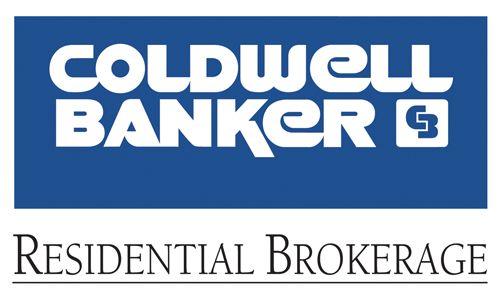Lenders do, on occasion, forgive some portion of a borrower’s debt in the short sale. The general tax rule that applies to any debt forgiveness is that the forgiven amount is treated as ordinary income and the borrower must pay tax on the forgiven amount. The amount forgiven is treated as taxable income to the borrower.
However, a law enacted in December 2007 provided relief to troubled borrowers when some portion of mortgage debt is forgiven. That debt forgiveness relief expires on Dec. 31, 2012 – unless The Congress approves extension.
Use this information to better understand mortgage debt cancellation:
General Rule for Debt Forgiveness:
If a lender forgives some or all of an individual’s debts, the general rule is that the forgiven amount is treated as ordinary income and the borrower must pay tax on the forgiven amount. Exceptions apply for bankruptcy, insolvency and certain other situations, including mortgage debt. (See below)
Current Law for Mortgage Debt (January 1, 2007 through Dec 31, 2012):
A borrower can be excused from paying tax on forgiven mortgage debt. The debt must be secured by a principal residence and the total amount of the outstanding obligation may not exceed the original mortgage amount plus the cost of any improvements. The objective of the legislation was to assure fairness: Homeowners should not be required to pay income tax where there is no cash realized in a transaction.
Example: The provision is best understood with an example.
Assume a family purchased their home for $175,000, with a mortgage of $150,000. In 2012, they need to sell the home. They find that the value of homes in their area has declined, so they can sell for only $120,000. At the time of the sale, the outstanding balance on their mortgage is $132,000. Thus, there will not be enough cash at settlement to repay the lender the full balance of the mortgage. If the lender forgives the entire difference between the amount owed ($132,000) and the sales price ($120,000), the debt forgiven will be $12,000. The relief provision assures that the homeowner will not pay tax on the $12,000 forgiven.
Does the relief apply only to a sale?
No. The provision has broader application. Lenders might forgive some portion of mortgage debt in a sale known as a “short sale” (as above, when value at sale is less than the amount owed) or in a foreclosure when the debt is wiped out. In addition, if a borrower still living in the home is able to make an arrangement with a lender that reduces the principal balance of a mortgage, the amount forgiven in that workout will not be taxed.
Can the homeowners in a short sale or foreclosure claim a loss?
No. The loss is considered a personal loss and is therefore ineligible for either capital loss or ordinary loss treatment.
What happens to the seller when mortgage debt is forgiven?
Until January 1, 2013, the homeowner will pay no tax on any forgiven amount. Under pre-2007 law, the amount of forgiven mortgage debt (the $12,000 in the example above), would have been treated as income, and taxed at ordinary income rates.
Does this provision apply to a refinanced mortgage?
Only in limited circumstances. The relief provision can apply to either an original or a refinanced mortgage. If the mortgage has been refinanced at any time, the relief is available only up to the amount of the original debt (plus the cost of any improvements). Thus, if the original mortgage was $125,000 and later refinanced in a cash-out arrangement for a debt totaling $140,000, the $15,000 cash-out is not eligible for relief if a lender later forgives some amount related to the cash-out. Tax relief is generally not available for second mortgages or home-equity lines of credit where the funds are not used for home improvement. Any amount that is not eligible for the relief provision will be taxed as ordinary income.
How does the homeowner get the correct information to the IRS?
The lender is required to provide the homeowner and the IRS with a Form 1099 reflecting the amount of the forgiven debt. The borrower/homeowner must file a Form 982 to reflect the amount forgiven and to show the reason why the forgiven amount is not taxable. Any taxable portion of forgiven debt will then be reported on the homeowner’s Form 1040 for the tax year in which the debt was forgiven. For example, a lender that forgave mortgage debt in March 2012 would provide the 1099 information to the IRS and the homeowner as required. The forgiven amount would then be reflected as appropriate on the 2012 Forms 982 and 1040 that will be due April 15, 2013.
Is there a limit on the amount of eligible debt?
Yes. Up to $2 million of mortgage debt on a principal residence may be forgiven tax-free. Any amount of forgiven debt above $2 million is taxable as ordinary income.
Does this provision apply to commercial real estate?
Permanent rules enacted in 1993 provide relief to debt-burdened commercial real estate and rental properties. The 2007 provision puts commercial/investment property and residential owner-occupied property on similar footing.
What if a property declines in value, but the owner stays in the house?
The provision would not apply. The provision applies only at the time of sale or other disposition or when there is a workout (reduction of existing debt) with the lender. No mechanism exists to reflect a loss of value while the property is still being used as a residence. (See the question on capital losses, above.)
Do all lenders forgive mortgage debt when property values decline or in foreclosure?
No. Some states have laws that allow a lender to require a repayment arrangement, particularly if the borrower has other assets. Forgiveness of debt is always at the lender’s discretion.
When did this legislation pass?
A version of the mortgage relief provision passed the House in 1999 and 2000, but was not enacted. The rules of current law were enacted in 2007 as part of H.R. 3648, a bill focused solely on housing issues. The original rules were effective from January 1, 2007 through December 31, 2009. The provision was extended through December 31, 2012 in 2008 as part of the stimulus legislation enacted in 2008. (HR 1424, PL 110-343).
More information here: http://www.irs.gov/individuals/article/0,,id=179414,00.html
AND
http://www.irs.gov/newsroom/article/0,,id=174034,00.html
.
NOTE: I’m a REALTOR, not a tax accountant. For TAX advice always contact a CPA accountant. For information regarding your mortgage loan contact your lender. If you live in Northern Virginia, Fairfax County VA, Loudoun County VA, and Prince William County VA, you may contact me directly for information regarding the short sale process.
.
SOURCE: IRS, REALTOR Magazine
39.112627
-77.553698
Read Full Post »


